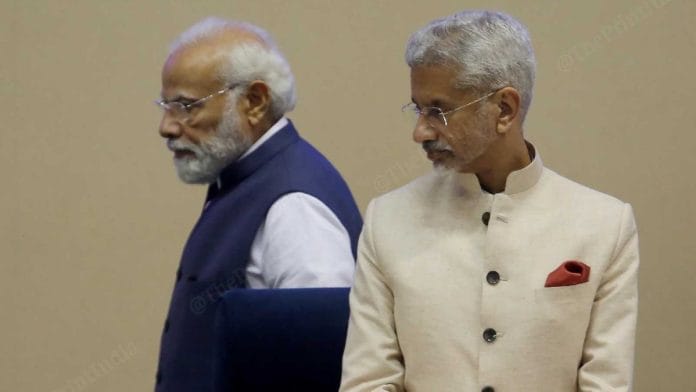New Delhi: Indian Prime Minister Narendra Modi has received calls from 16 foreign leaders, while India has garnered support from over 100 United States (US) lawmakers since the terrorist attacks in Jammu and Kashmir’s Pahalgam.
Some of the earliest leaders to call Modi following the attack Tuesday are United States President Donald J. Trump, Prime Minister of , Prime Minister of Nepal K.P. Sharma Oli, and Prime Minister of Mauritius Navin Ramgoolam.
At least four armed gunmen wielding AK-47 rifles sprayed bullets at tourists at Pahalgam in Jammu and Kashmir, resulting in the deaths of at least 26 people – 25 Indians and one foreign national. The attack stands as one of the deadliest against civilians in the Union Territory in recent years.
A day after the attacks, India announced evidence of cross-border linkages to the incident and unveiled a series of punitive measures against Pakistan. These included placing the Indus Waters Treaty in abeyance, expelling three defence advisers, and revoking the visas of Pakistani nationals present in India.
Since then, New Delhi has been inundated with calls from foreign leaders offering support and expressing condolences. United States Vice President J.D. Vance, who was in India during the time of the attack, also personally called Prime Minister Modi.
Other leaders who have spoken to Modi include Israeli Prime Minister Benjamin Netanyahu, who also discussed the future of the India-Middle East-Europe Economic Corridor (IMEC) during the call.
King Abdullah II of Jordan, Japanese Prime Minister Shigeru Ishiba, French President Emmanuel Macron, Italian Prime Minister Giorgia Meloni, Egyptian President Abdel Fattah el-Sisi, Dutch Prime Minister Dick Schoof, British Prime Minister Keir Starmer, Sri Lankan President Anura Kumara Dissanayake, United Arab Emirates (UAE) President Mohamed bin Zayed Al Nahyan, and Iranian President Masoud Pezeshkian are among the other leaders who have engaged with Modi.
The Iranian President has spoken to both Modi and Pakistani Prime Minister Shehbaz Sharif, offering Tehran’s role as a mediator to ease tensions between the two nations.
India’s diplomatic outreach has been vigorous, with over 30 ambassadors in New Delhi briefed by Foreign Secretary Vikram Misri over the last three days. Ambassadors from the Group of Seven (G7) Western economies – including the US, the United Kingdom (UK), Canada, the European Union (EU), Germany and France – were among the first to be briefed by Misri.
Senior diplomats from the Group of Twenty (G20), including China, Russia, Saudi Arabia, the UAE, and Indonesia, were also briefed by Misri as New Delhi pressed its case regarding the cross-border elements linked to the Pahalgam attack.
Additionally, ambassadors from European Union member states such as Ireland, Lithuania, and Slovenia, alongside those from Latin America, were briefed by senior officials from the Ministry of External Affairs.
Strong backing from the US
Beyond the President and Vice President, India has secured messages of support from senior United States administration officials and more than 100 lawmakers in Washington – a reflection of the deepening ties at all levels between the two nations.
Kash Patel, the director of the FBI, is the latest senior administration official to express support for India following the Pahalgam attacks. Patel offered the full backing of the US to New Delhi.
The FBI sends our condolences to all the victims of the recent terrorist attack in Kashmir — and will continue offering our full support to the Indian government.
This is a reminder of the constant threats our world faces from the evils of terrorism. Pray for those affected.…
— FBI Director Kash Patel (@FBIDirectorKash) April 26, 2025
United States National Security Advisor Mike Waltz, Secretary of State Marco Rubio, Under Secretary of Defence Elbridge Colby, and Attorney General Pam Bondi are among the senior figures who have conveyed statements supporting India after the Pahalgam terrorist attack.
Tulsi Gabbard, Director of National Intelligence, described the attack as an “Islamist terrorist attack targeting Hindus” and pledged Washington’s assistance in hunting down those responsible.
At least 75 members of the House of Representatives and 25 members of the US Senate have reacted to the attacks. The House Committee on Foreign Affairs Majority criticised The New York Times for describing the Pahalgam attackers as “militants” rather than “terrorists.”
(Edited by Radifah Kabir)
Also Read: With you as you hunt them down—Tulsi Gabbard condemns ‘Islamist terrorist attack targeting Hindus’






